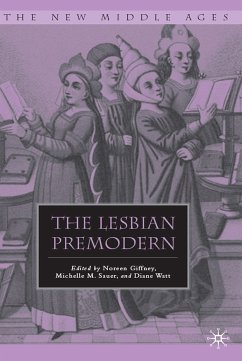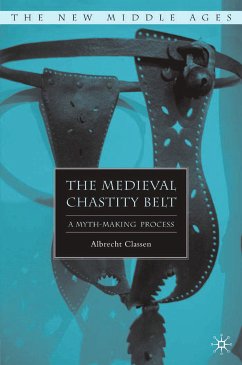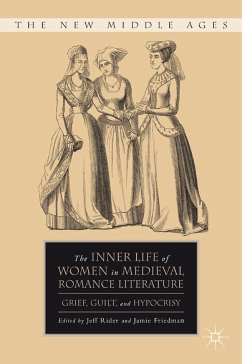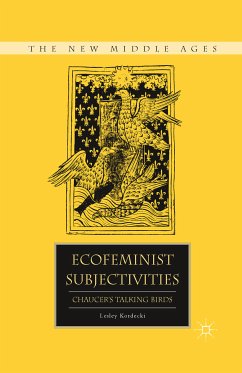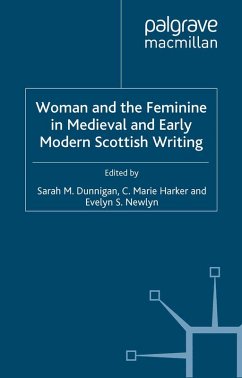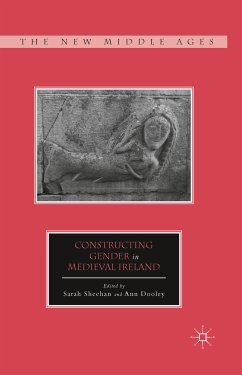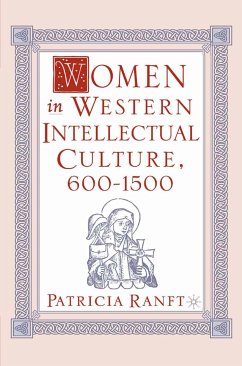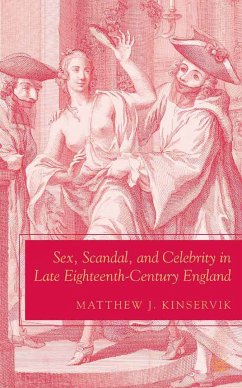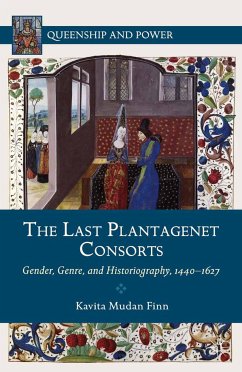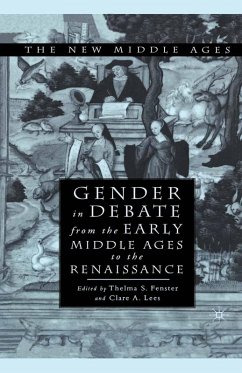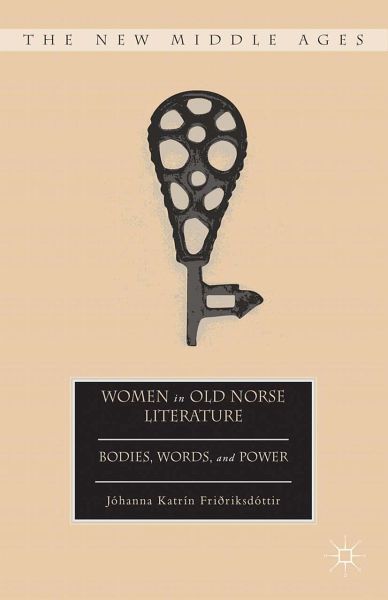

PAYBACK Punkte
52 °P sammeln!






Old Norse texts offer different ideas about what it is to be female, presenting women in diverse social and economic positions. This book analyzes female characters in medieval Icelandic saga literature, and demonstrates how they engaged with some of the most contested values of the period, revealing the anxieties of both the authors and audiences.
Dieser Download kann aus rechtlichen Gründen nur mit Rechnungsadresse in A, B, BG, CY, CZ, D, DK, EW, E, FIN, F, GR, HR, H, IRL, I, LT, L, LR, M, NL, PL, P, R, S, SLO, SK ausgeliefert werden.
Jóhanna Katrín Friðriksdóttir is a Postdoctoral Research Fellow at The Árni Magnússon Institute for Icelandic Studies, Iceland. She has published several articles on Old Norse-Icelandic prose and poetry.
Produktdetails
- Verlag: Palgrave Macmillan US
- Seitenzahl: 192
- Erscheinungstermin: 12. März 2013
- Englisch
- ISBN-13: 9781137118066
- Artikelnr.: 38279990
"With Women in Old Norse Literature: Bodies, Words, and Power, Jóhanna Katrín Friðriksdóttir offers a high-quality piece of research, especially as regards its detailed and accurate close reading of the Old Norse text sources. This monograph will certainly stimulate much discussion on female characters in Old Norse literature, and forthcoming research will have to measure up to this definitive work." (Lukas Rösli, Scandinavian Studies, Vol. 88 (2), 2016)
"Fridriksdóttir is to be thanked for offering saga narratives not solely as engines of social control nor simply as exercises in imaginative empowerment, but rather as open, unpredictable worlds, created by their authors not so much to pursue a predetermined agenda as to entertain
"Fridriksdóttir is to be thanked for offering saga narratives not solely as engines of social control nor simply as exercises in imaginative empowerment, but rather as open, unpredictable worlds, created by their authors not so much to pursue a predetermined agenda as to entertain
Mehr anzeigen
and excite reflection on the part of their audiences . . . Women in Old Norse Literature: Bodies, Words, and Power promises valuable future work on the implications of these sagas for understanding this society in greater depth, especially inhow the various roles of both men and women were imagined in the evolving tension between traditional Norse forms of thought and feeling and the 'dominant paradigms' of medieval Christian culture." - The Medieval Review
"In her concluding chapter, Fridriksdóttir reminds us of the book's goals: to consider other types of female characters and genres; to analyze the relationship between gender and power across genres; and to challenge the stereotype of women wielding power as violent only. Women in Old Norse Literature does all of this and more, and Fridriksdóttir has made a wonderful contribution to scholarship." - Speculum
"In her concluding chapter, Fridriksdóttir reminds us of the book's goals: to consider other types of female characters and genres; to analyze the relationship between gender and power across genres; and to challenge the stereotype of women wielding power as violent only. Women in Old Norse Literature does all of this and more, and Fridriksdóttir has made a wonderful contribution to scholarship." - Speculum
Schließen
"A broad range of secular prose sources are surveyed in this book to illuminate the agency of women in all manner of situations, from the decorous queen to the giantess, 'an independent figure bursting with improprieties'. Fridriksdottir gathers together an unlikely band of female figures from across the centuries of Old Norse literature, bringing into the frame a multitude of characters whose actions and words are full of interest." - Judy Quinn, Cambridge University 'Women in Old Norse Literature surpasses what has to date been written about the image of women in the sagas. Unlike previous studies that have focused almost exclusively on a handful of the classical Íslendingasögur (Sagas of Icelanders) and the figure of the female inciter,
Mehr anzeigen
this book considers the role played by women in the entire corpus of extant secular, vernacular prose from around 1200 until the mid-sixteenth century. Analysis of the great variety of literary genres in Iceland in the Middle Ages, including the fornaldarsögur (mythical-heroic sagas) and riddarasögur (chivalric sagas), reveals women's search for subjectivity, autonomy, self-determination, access to economic resources, freedom of movement, love and respect in marriage, and even power in the public sphere. The book confirms that the sagas contain nuanced and multidimensional female characters distinguished by social position, ethnicity, economic means, and sexual behavior. The superb study attests the multiplicity and heterogeneity of female images and perspectives on women that were available to medieval Icelandic audiences.' - Marianne E. Kalinke, Professor Emerita of Germanic Languages and Literatures, University of Illinois at Urbana-Champaign, USA
Schließen
Für dieses Produkt wurde noch keine Bewertung abgegeben. Wir würden uns sehr freuen, wenn du die erste Bewertung schreibst!
Eine Bewertung schreiben
Eine Bewertung schreiben
Andere Kunden interessierten sich für


